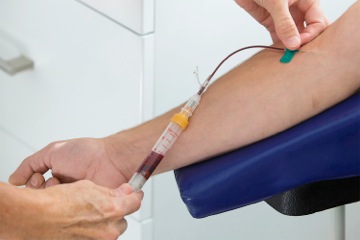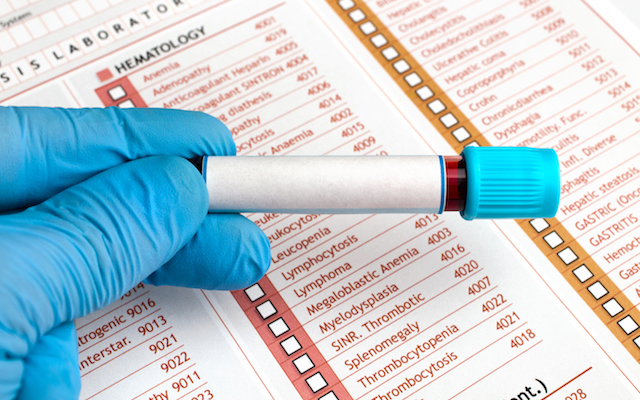Blog

SEPTEMBER 2023 TABLE HOPPING
IGF1
I’m an advocate of trying to use blood work to find out as much as possible about a person . You cannot judge a book by its cover. You can look healthy but be metabolically inflexible. Most healthcare providers are still using blood tests that are 30 years old i.e. total cholesterol and hemoglobin A1c. Measuring insulin and insulin resistance, measuring the ratio of the omega-3 and omega-6 fatty acids in your system, routinely measuring markers of inflammation like CRP and Homocysteine ,I think, are a more modern approach to assessing your health. Both Dr Gundry and Dr Furhman use this test on a regular basis.
One new metric is insulin like growth factor number one…aka IGF1. As the name States it’s like insulin but its level in your body doesn’t just reflect the carbohydrates in your diet like insulin does . Instead it reflects a variety of measures including carbs but is thought to be affected by protein intake. So insulin measures carbs and IGF1 measures your protein intake. There is debate in the medical /nutrition world between those who think we need more protein to prevent the sarcopenia of aging and those who feel proteins are inflammatory and need to be restricted. It turns out that not all proteins are equal in their effects on the body. Animal protein i.e. meat and dairy appear to raise the IGF1 level more than plant derived protein. There is a metabolic pathway called mTor that is activated by animal protein and adults do not want this pathway stimulated. The low protein group says you don’t need more than about 30 grams of protein a day and the high protein group says you should have 1 mg per pound ie a 170 pound person should take in 70 grams of protein.
Insulin-like growth factor is produced in the liver and is triggered as a result of growth hormone stimulation. You want to actively grow when you’re younger but when you achieve adulthood further growth becomes undesirable. Imagine if we all just kept getting taller and taller and bigger and bigger as we got older it would make for interesting nursing homes. So, growth hormone is a youth hormone. In the sense that it’s highest when you’re young like testosterone. Unlike testosterone, supplementing growth hormone can be a dangerous undertaking because it may stimulate the growth of cancer. Likewise, higher LGF1 levels have been linked to increased risk of certain cancers.
In the past , measuring IGF1 levels were used primarily in pediatrics to assess the growth rate of children but a growing number of people looking at inflammatory processes in the body are using it as a marker for adult health as well. Lower is generally better but there is a U shaped curve ….very low and very high numbers are both bad for different reasons. Too low and you’re not making enough protein and building enough to be healthy. Too high and you’re promoting cancer. Overall, it’s better to have as low a level as possible until you et over the age of 70. After that you want it to be a little higher so you don’t have muscle wasting. The medical literature is full of references to insulin-like growth factors promoting multiple different types of cancer. it may be in fact the link between high sugar diets and accelerating cancer growth. We know that cancer cells need sugar to make energy and grow. At the same time the high sugar levels may elevate IGF1 which acts directly on the tumors. Here’s the appropriate reference ..PMID: 16087968 Here’s another reference to the link between milk intake and prostate cancer…the link is ..IGF1 .PMID: 28361446 In the Nurses’ Health Study, premenopausal women with IGF-1 levels higher than 207 had a substantially higher risk of breast cancer. Likewise, In the Physicians’ Health Study, there was an increase in prostate cancer risk once IGF-1 increased above 185 ng/ml.





A high IGF level is linked to accelerated aging , premature aging and to an increased risk of multiple cancer. .Obviously , IGF1 levels are affected by your age as well as your carbohydrate intake , protein intake ,BMI, liver disease ,and diabetes .Protein intake is well known to be a stimulant for IGF1 but the type of protein matters. Meat and dairy have more concentrated and complex proteins than plants do and it appears that IGF1 is higher in people who have more meat and dairy in their diet. So, if you want to keep your IGF1 low you may want to vary/shift your protein intake.
Luckily, just like with Vitamin D., you can easily and fairly cheaply have your levels of IGF1 measured. The sweet spot is about 150 but is age normalized and you can use the lab value as a reference point and change your diet and see if this marker changes as well. Maybe animal proteins and dairy inflame you in some way and raise your IGF1 levels , maybe they dont….This is another metric you can reference as you change your diet and see your numbers change. Your health care provider is not familiar with this test and will discourage you from ordering it. It’s your health and your health care dollar….just tell the doctor you are trying to measure your health with different metrics like Insulin levels , Omega 3/6 levels and IGF1 levels and to humor you. Tell him to use Metabolic Syndrome or Insulin Resistance as a diagnosis since 80-85% of Americans have these conditions and it’s likely you do as well. Even if you have to pay directly for the test , my lab people tell me it’s a cheap test and I intend to use this test repeatedly on my patients along with the Omega 3/6 test and fasting Insulin to assess their diet and their health. You can too !
Until next month….get well and stay well. JT BARRY MD

Leave a Reply